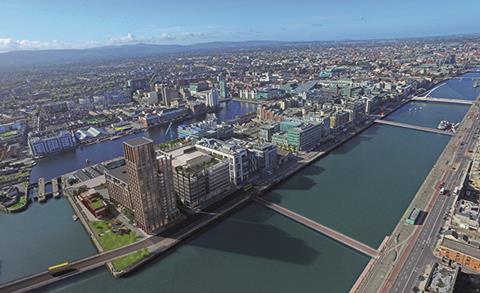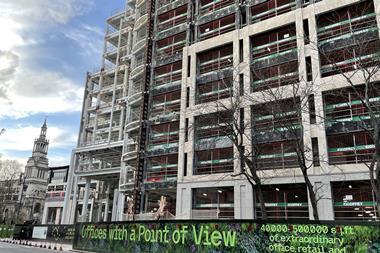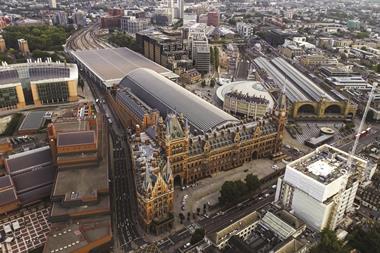The Good Friday Agreement was signed two decades ago and what a 20 years it has been since. The end of ‘the Troubles’ meant Northern Ireland’s property market was suddenly open for business, prompting a flurry of deals and development.

There have been extreme highs – the Belfast office market saw record take-up in H1 2018 of more than 500,000 sq ft, up 108,356 sq ft on the full-year figure for 2017 – but there have also been extreme lows. And now there are other challenges to overcome: most prominently the collapse of Stormont and the Brexit border issue.
One source says Northern Ireland’s greatest strength is “the people’s resilience in business”, and it’s that very resilience that will no doubt carry it through into a prosperous – albeit uncertain – future.
This year isn’t the only anniversary being marked on the island of Ireland. It’s 10 years on from the global financial crash that decimated the Republic of Ireland’s economy. Dublin’s office market was effectively frozen for five years. Not only has it now thawed; it is alive and kicking with some 12m sq ft of new office space in the development pipeline.

The property market in Ireland’s second city of Cork is also in rude health and bracing itself for a development boom. The question is: can a city with a modest population of 125,000 support such growth? Based on the amount of money being invested, the answer appears to be a resounding ‘yes’.
Ireland’s cities are also set to benefit from a major new occupier. Whitbread Group has a requirement for 10 to 15 sites in Dublin city centre for its Premier Inn hotel brand and plans to expand further into Cork, Galway and Limerick.
All told, the message is loud and clear: despite Brexit and other uncertainties, Ireland, both Northern and the Republic, is very much open for business.
Mia Hunt is Property Week’s market reports editor
Topics
Ireland supplement: two decades on from Good Friday Agreement
- 1
 Currently reading
Currently readingTwo decades on from Good Friday Agreement, Ireland is open for business
- 2
- 3
- 4
- 5
- 6
- 7
- 8
- 9






































No comments yet